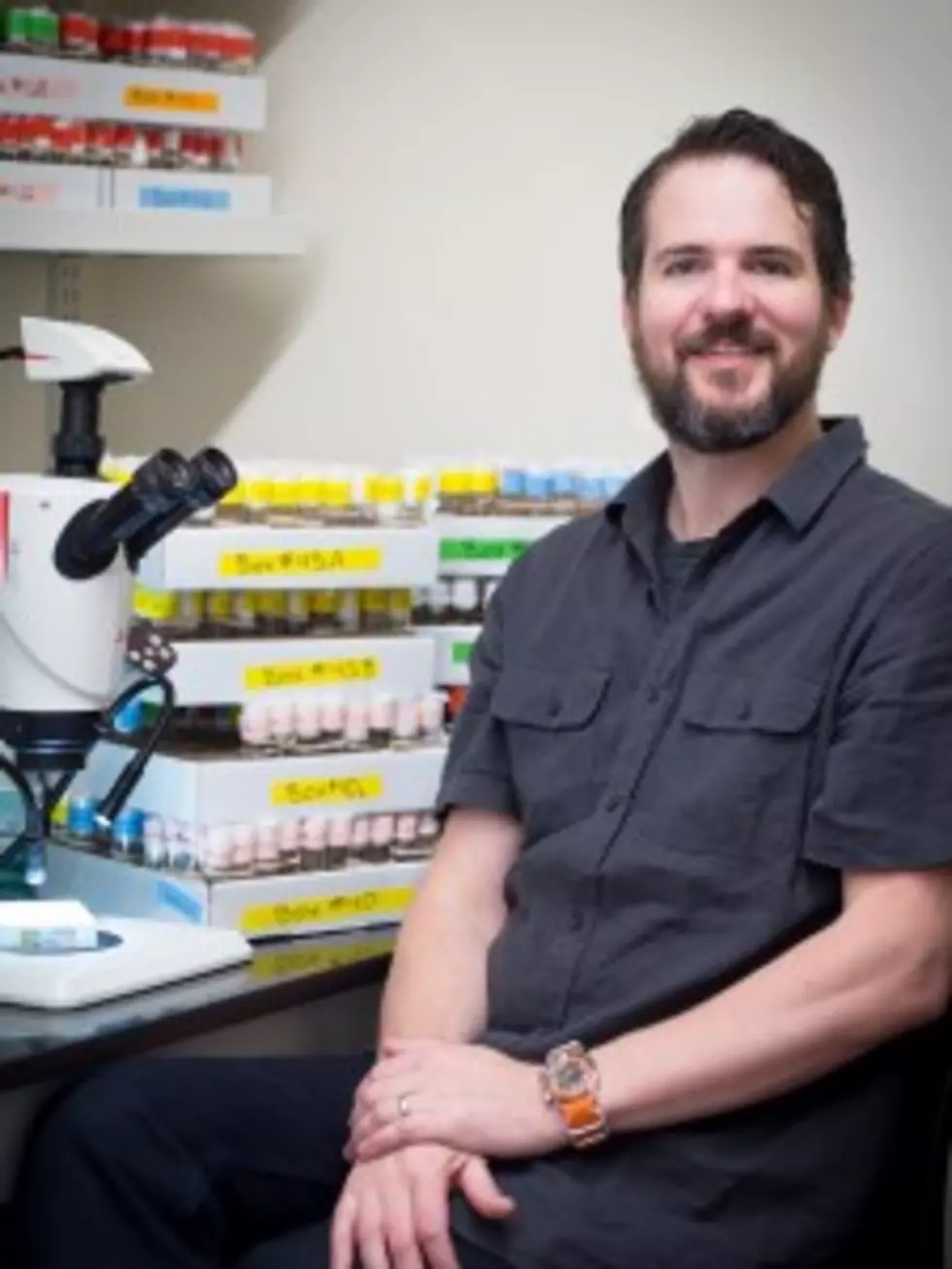
What Bugs Bugs?
New UM Faculty Member Lands $1.8 Million Grant to Study Intracellular Bacteria that Infect Most Insects
MISSOULA – A new University of Montana faculty member, Brandon Cooper, recently was awarded a five-year, $1.8 million Outstanding Investigator Award from the National Institutes of Health to study how specific intracellular bacteria affect the physiology and fitness of their insect hosts.
Cooper moved into his UM office this fall – with him he brought Drosophila flies sampled from around the world. From his home base in Missoula, he and his team will focus on understanding Wolbachia bacteria spread within and between Drosophila host species.
Maternally transmitted Wolbachia bacteria infect the cells of about half of all insects on the planet, in addition to other arthropods and nematodes.
“Wolbachia are the most prevalent endosymbionts in nature, yet we know very little about how they spread within and between host species to become common,” Cooper said. “Our research will fill this gap in knowledge.”
Wolbachia became famous for manipulating host reproduction. More recently, it was recognized that Wolbachia can protect their hosts from viruses. When exposed to viruses, flies with Wolbachia infections are more likely to survive than those that are not infected with Wolbachia.
This observation was quickly leveraged and Wolbachia from the Drosophila fly was used as a biocontrol of vector-borne disease. With a target set on mosquitoes notorious for spreading human disease such as Zika or dengue, Wolbachia from Drosophila have been transinfected into the mosquitoes and are being released around the globe. The success of this strategy relies on efficiently spreading Wolbachia infections through host populations.
Cooper’s team will use the NIH funding to find the answers to how these bacteria affect host physiology and fitness to spread.
“I am incredibly grateful for this award, which will support my lab’s research on Wolbachia over the next five years,” Cooper said. “We are thrilled to work on these problems here at UM where we have wonderful colleagues in UM’s Cellular, Molecular and Microbial Biology program and the Division of Biological Sciences.”
Before coming to UM, Cooper completed his doctorate in evolutionary genetics at Indiana University, Bloomington. He completed his NIH-funded postdoctoral training at the University of California, Davis. He started working at UM in 2016.
When asked why he chose to research at UM, Cooper said it was because of the chance to work with “exceptional colleagues.”
“In my areas of study, there are not only colleagues working in similar disciplines, but they are some of the best in the world,” Cooper said.
More From K96 FM









